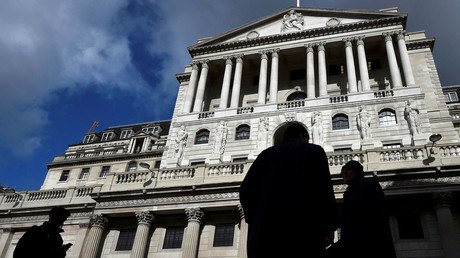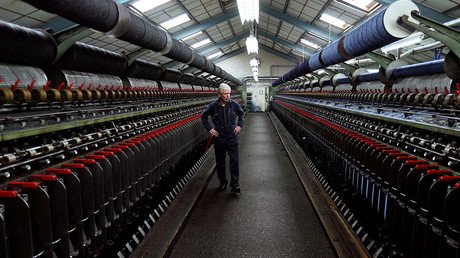UK mortgage approvals drop to 18-mth low

The number of mortgage approvals in the UK declined in July to the lowest level in a year and a half with consumer borrowing slowing as well, according to data from the Bank of England.
The numbers turned out to be worse than analysts expected, confirming fears over the short-term economic effects of the UK’s decision to quit the European Union.
The data shows 60,912 new mortgages were approved in the first full month after the Brexit-vote, a 3,000 decline from the month earlier and the lowest total since January 2015.
READ MORE: London rents see first decline in 6 years
Experts expect mortgage approvals to continue falling further in the near future due to the uncertainty over the vote that has already affected new buyer enquiries.
“With Brexit uncertainty having driven new buyer inquiries lower, we suspect mortgage approvals have further to fall over the rest of the year,” said Scott Bowman, an economist at Capital Economics as quoted by the FT.
The slowdown in mortgage approvals shows real estate prices will probably slide three percent by the end of the current year with a further drop of five percent in 2017.
READ MORE: UK consumers keep spending despite Brexit uncertainty
“Housing market activity is likely to be limited over the coming months and prices will weaken as heightened uncertainty following the UK's vote to leave the EU weighs down on consumer confidence and willingness to engage in major transactions, and also hampers economic activity,” said Howard Archer, chief UK and European economist at IHS Global Insight as quoted by The International Business Times.
READ MORE: Weak pound sends UK inflation rate near 2-yr high
The report shows that non-mortgage borrowing by consumers was also weaker in July than it has been in recent months. Consumer credit was up by £1.2 billion against an average of £1.6 billion over the previous six months. Meanwhile, credit card lending increased by £0.5 billion to a record £65.5 billion.
“We remain concerned that while most households will be able to handle this extra borrowing, a minority of households could find themselves exposed to financial difficulty,” said Joanna Elson, chief executive of the Money Advice Trust as quoted by the BBC.














